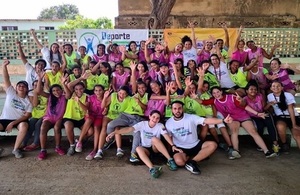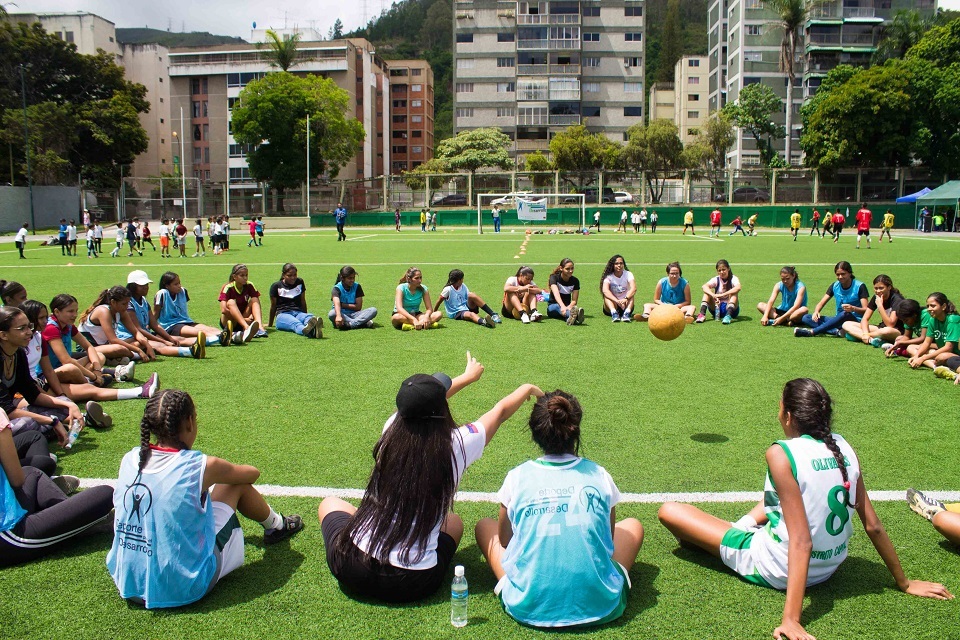She Plays Safe: a #LeaveNoGirlBehind project in Venezuela
The UK is supporting the project She Plays Safe (SPS) through the British Embassy in Caracas, as part of the #LeaveNoGirlBehind campaign.

A session of the She Plays Safe project in Nueva Esparta state, Venezuela
Being a girl or teenager in Venezuela these days is rather difficult. Most Venezuelans can barely cover their most basic needs like food, sanitation, education and healthcare. Imagine being a girl or a teenager, stuck in these family dynamics. The humanitarian crisis is affecting women and girls more heavily, as per the latest Women at the Edge report, issued by local NGOs.
Women and girls’ sexual and reproductive rights are at risk too. Teenage pregnancy rates have gone up due to the lack of availability of contraceptives, making Venezuela the country with the third highest rate in Latin America, only comparable to that of Sub-Saharan countries, as per a WHO/UNFPA 2018 report.
Children are also dropping out of school massively. Local NGOs have calculated a 30% drop in school attendance, related to the lack of food, transport and money to pay for school supplies and uniforms. We know how this affects girls, preventing them from having a better chance in life and better opportunities to fulfil their potential and achieve their dreams.
Hoping to help tackle some of these issues, the UK is funding the project She Plays Safe (SPS), through the British Embassy in Caracas, as part of the #LeaveNoGirlBehind campaign, which advocates for 12 years of quality education for girls.
Through football and rugby clinics, more than 160 young female Venezuelan athletes from low-income communities from across the country, are being trained on effective communication skills, self-esteem and well-being, early-pregnancy prevention, career planning, gender equality and female leadership and empowerment. The ultimate goal is to give these girls a real chance to fulfill their life project, despite the harsh conditions in which they are growing, helping them explore the job or study opportunities for women and girls in sports available to them, while reducing the chance of dropping out of school.

About 160 young female Venezuelan athletes from low-income communities are participating in the project
A study of the US Women’s Sport Foundation showed that “athletic participation functions as a developmental resource for many adolescent females in ways that positively influence sexual behaviours while reducing girls’ risk for pregnancy.”
We are proud to work with the Venezuelan NGO Deporte para el Desarrollo (Sports for Development) on this transcendental initiative, and their multidisciplinary team comprised of athletes, psychologists, sociologists and anthropologists, along with other key partners such as UNFPA and local women’s organisations.
We hope that our SPS Ambassadors, will develop a greater sense of belonging to their sports academies, and that through advocacy, they become role models for future female athletes’ generations and the wider sports community in Venezuela, helping battle traditional gender stereotypes.
This year’s theme for the International Day of the Girl, which is marked every 11 October, is “Girls Force: Unscripted and Unstoppable”. We would like to think these girls will be just that: unscripted and unstoppable.
Guest blog by Irene Coello, Programmes Manager & Human Rights Adviser, British Embassy Caracas.